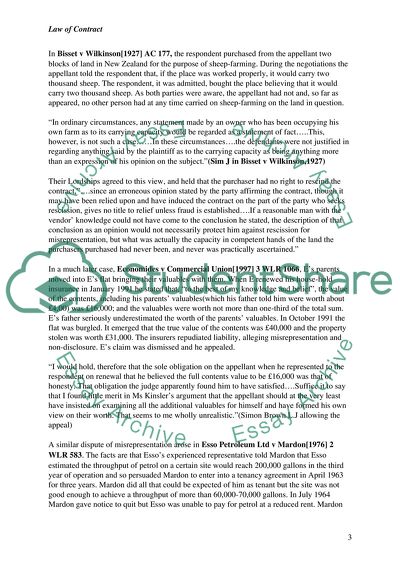Cite this document
(“Law of Contract Essay Example | Topics and Well Written Essays - 1250 words”, n.d.)
Law of Contract Essay Example | Topics and Well Written Essays - 1250 words. Retrieved from https://studentshare.org/law/1575142-law-of-contract
Law of Contract Essay Example | Topics and Well Written Essays - 1250 words. Retrieved from https://studentshare.org/law/1575142-law-of-contract
(Law of Contract Essay Example | Topics and Well Written Essays - 1250 Words)
Law of Contract Essay Example | Topics and Well Written Essays - 1250 Words. https://studentshare.org/law/1575142-law-of-contract.
Law of Contract Essay Example | Topics and Well Written Essays - 1250 Words. https://studentshare.org/law/1575142-law-of-contract.
“Law of Contract Essay Example | Topics and Well Written Essays - 1250 Words”, n.d. https://studentshare.org/law/1575142-law-of-contract.


